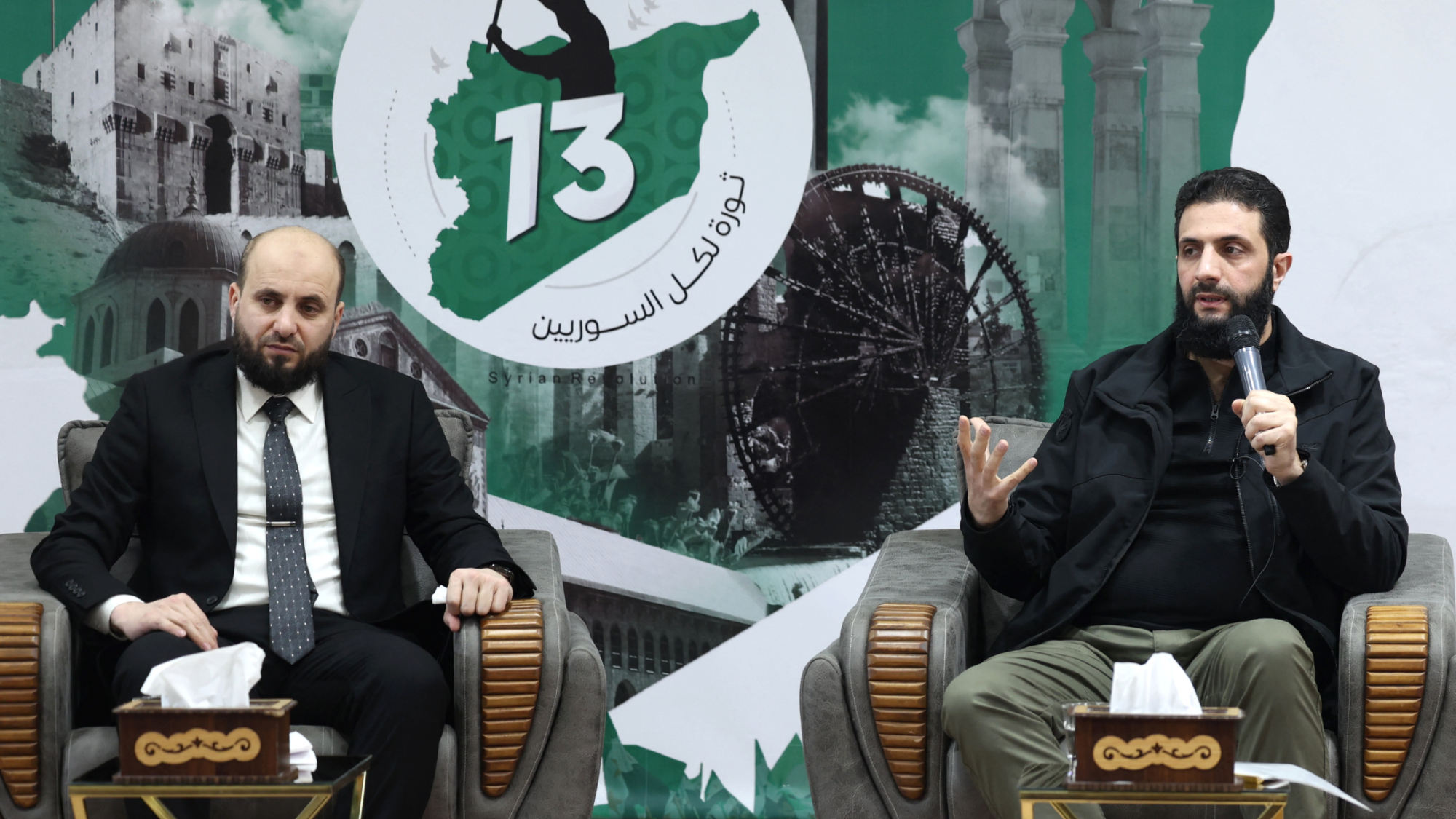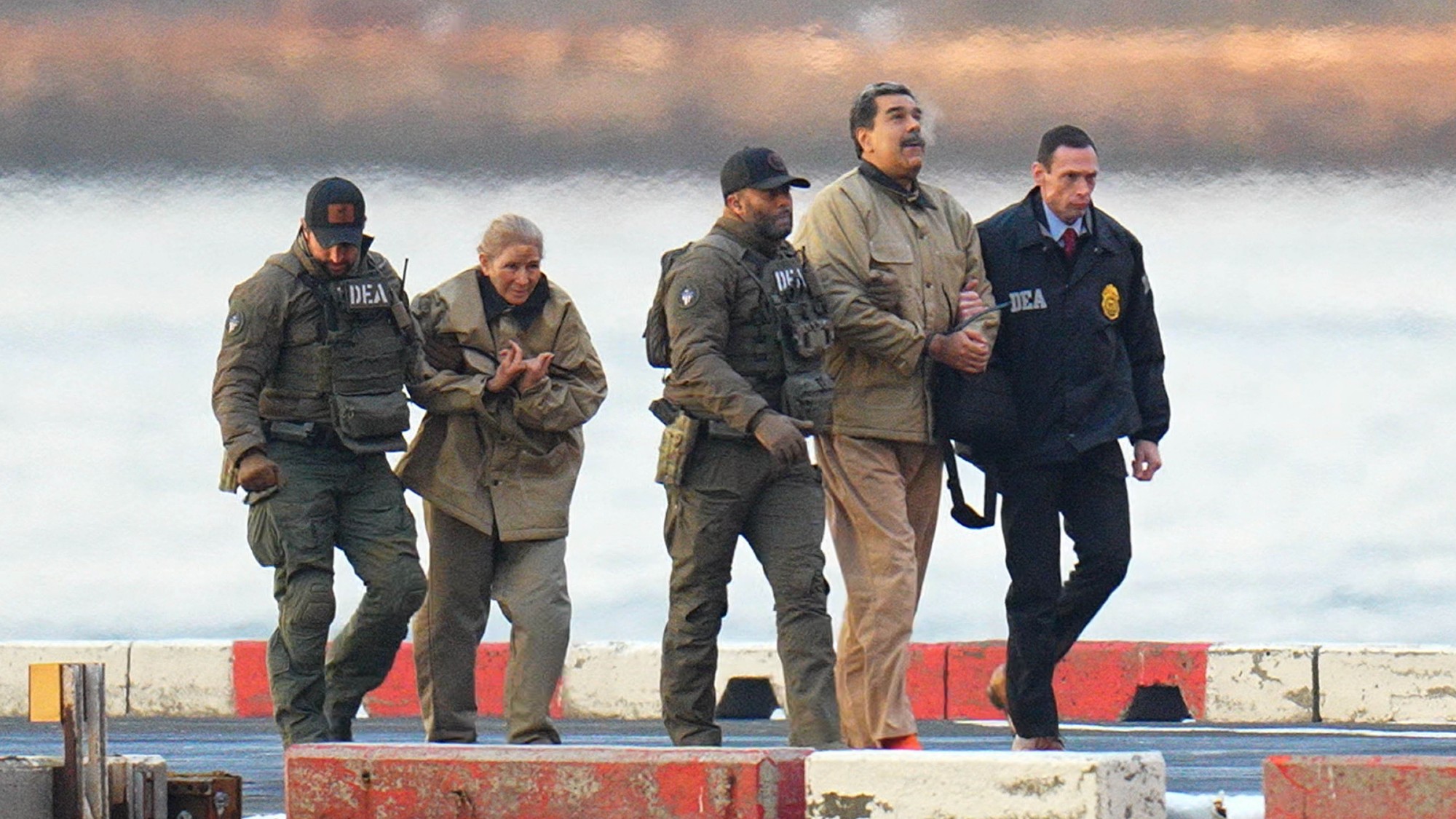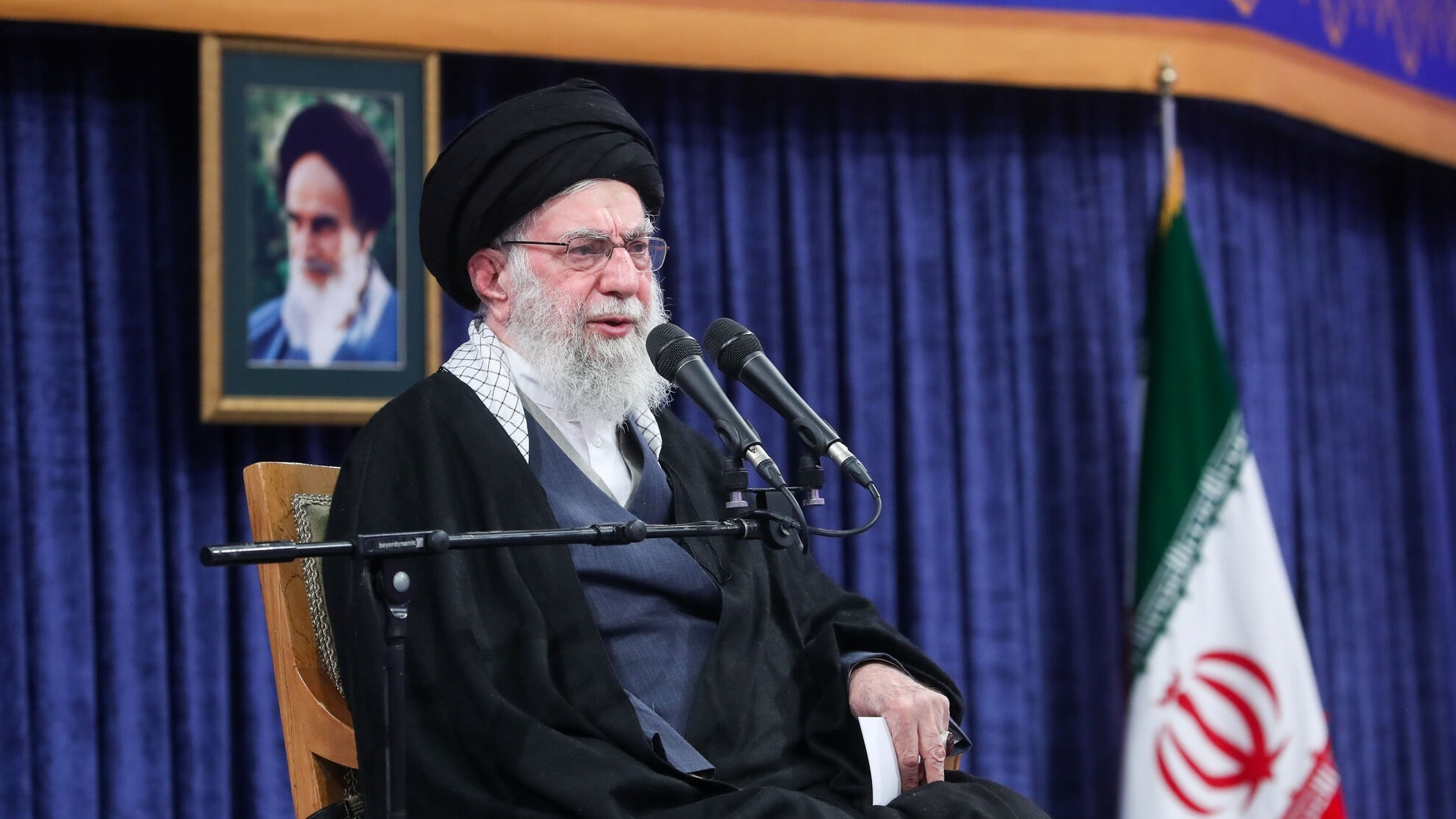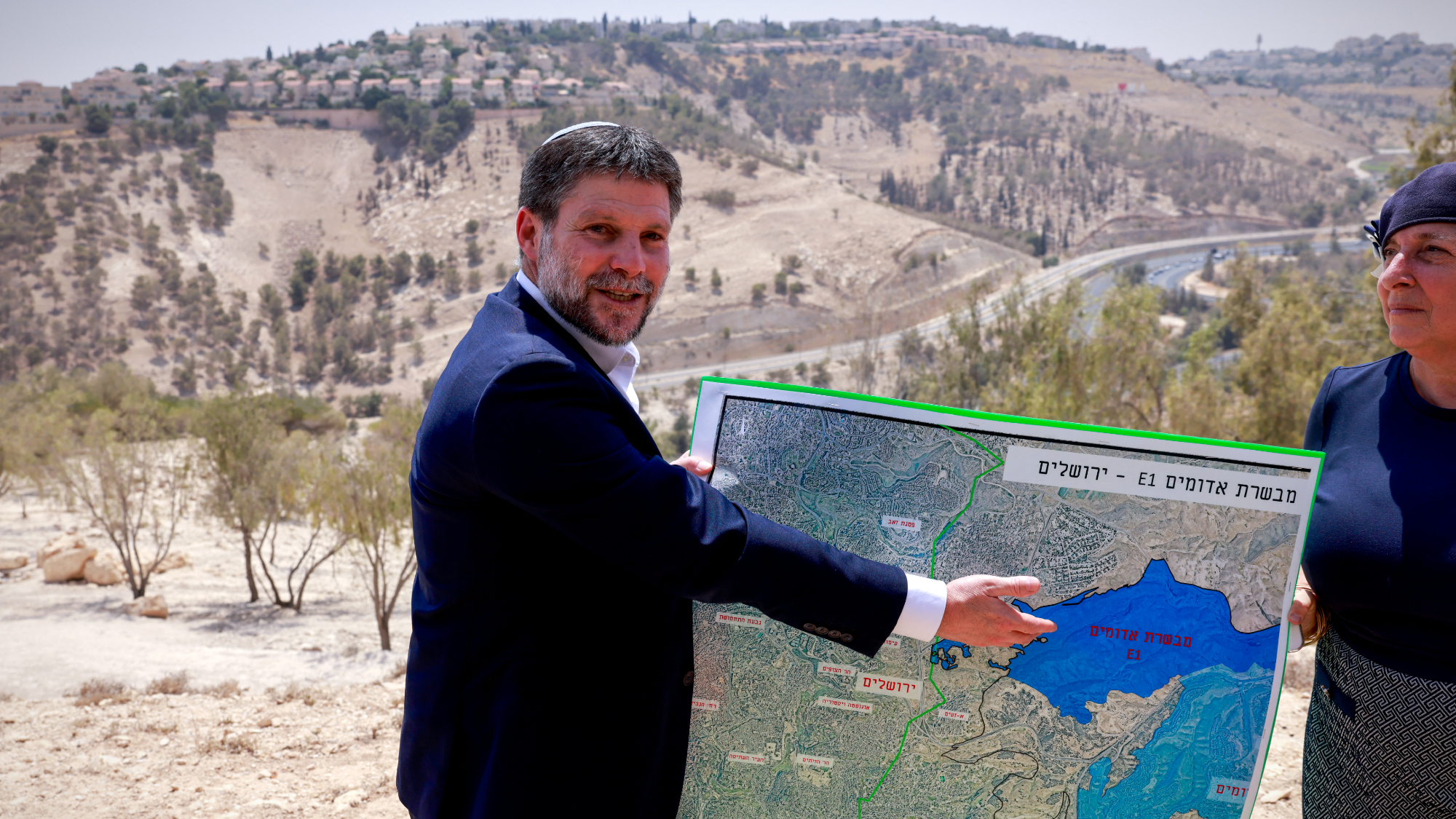New Syria government takes charge, urging 'stability'
The rebel forces that ousted Syrian leader Bashar al-Assad announced an interim government


A free daily email with the biggest news stories of the day – and the best features from TheWeek.com
You are now subscribed
Your newsletter sign-up was successful
What happened
The rebel forces that ousted Syrian leader Bashar al-Assad on Sunday announced an interim government Tuesday. Mohammed al-Bashir (pictured above, left), who ran the rebel alliance's "salvation government" in its Idlib province stronghold, said on state TV he would lead the country as caretaker prime minister until March 1. He was pictured leading a Cabinet meeting with his Idlib governing team, rebel leader Ahmed Al-Sharaa — also known by his nom de guerre Abu Mohammed al-Jolani (above, right) — and several Assad holdovers, including outgoing Prime Minister Mohammad Ghazi al-Jalali.
Who said what
"Now it is time for the people to enjoy stability and calm," al-Bashir said to Al Jazeera, per the BBC, in his first interview as prime minister. In Damascus, life is "slowly returning to normal," The Associated Press said, with banks and shops reopening, people returning to work, traffic resuming and cleaners sweeping streets littered with bullet casings.
But "rebuilding Syria will be a colossal task following a civil war that killed hundreds of thousands of people," Reuters said. The terrorist designation of lead rebel group Hayat Tahrir al-Sham (HTS) in Western countries is a complicating factor. Al-Sharaa, the HTS leader, said on Telegram Tuesday per The Guardian that the new government "will not relent in holding accountable the criminals, murderers and security and military officers involved in torturing the Syrian people," but would grant amnesty to rank-and-file conscripted soldiers.
The Week
Escape your echo chamber. Get the facts behind the news, plus analysis from multiple perspectives.

Sign up for The Week's Free Newsletters
From our morning news briefing to a weekly Good News Newsletter, get the best of The Week delivered directly to your inbox.
From our morning news briefing to a weekly Good News Newsletter, get the best of The Week delivered directly to your inbox.
What next?
"Even as the former rebels sought to consolidate power," The New York Times said, "Syria's neighbors set out to shore up their own interests." Israel said it had struck more than 350 sites to destroy Assad's conventional and chemical weapon stockpiles, occupied a buffer zone inside Syria and destroyed its Navy. Turkey and its proxy forces advanced on U.S.-backed Kurdish fighters in northern Syria.
A free daily email with the biggest news stories of the day – and the best features from TheWeek.com
Peter has worked as a news and culture writer and editor at The Week since the site's launch in 2008. He covers politics, world affairs, religion and cultural currents. His journalism career began as a copy editor at a financial newswire and has included editorial positions at The New York Times Magazine, Facts on File, and Oregon State University.
-
 Buddhist monks’ US walk for peace
Buddhist monks’ US walk for peaceUnder the Radar Crowds have turned out on the roads from California to Washington and ‘millions are finding hope in their journey’
-
 American universities are losing ground to their foreign counterparts
American universities are losing ground to their foreign counterpartsThe Explainer While Harvard is still near the top, other colleges have slipped
-
 How to navigate dating apps to find ‘the one’
How to navigate dating apps to find ‘the one’The Week Recommends Put an end to endless swiping and make real romantic connections
-
 Syria’s Kurds: abandoned by their US ally
Syria’s Kurds: abandoned by their US allyTalking Point Ahmed al-Sharaa’s lightning offensive against Syrian Kurdistan belies his promise to respect the country’s ethnic minorities
-
 EU and India clinch trade pact amid US tariff war
EU and India clinch trade pact amid US tariff warSpeed Read The agreement will slash tariffs on most goods over the next decade
-
 Syria’s Islamic State problem
Syria’s Islamic State problemIn The Spotlight Fragile security in prison camps leads to escape of IS fighters
-
 Maduro pleads not guilty in first US court hearing
Maduro pleads not guilty in first US court hearingSpeed Read Deposed Venezuelan leader Nicolás Maduro and his wife Cilia Flores pleaded not guilty to cocaine trafficking and narco-terrorism conspiracy
-
 Iran’s government rocked by protests
Iran’s government rocked by protestsSpeed Read The death toll from protests sparked by the collapse of Iran’s currency has reached at least 19
-
 Israel approves new West Bank settlements
Israel approves new West Bank settlementsSpeed Read The ‘Israeli onslaught has all but vanquished a free Palestinian existence in the West Bank’
-
 US offers Ukraine NATO-like security pact, with caveats
US offers Ukraine NATO-like security pact, with caveatsSpeed Read The Trump administration has offered Ukraine security guarantees similar to those it would receive from NATO
-
 Hong Kong court convicts democracy advocate Lai
Hong Kong court convicts democracy advocate LaiSpeed Read Former Hong Kong media mogul Jimmy Lai was convicted in a landmark national security trial
